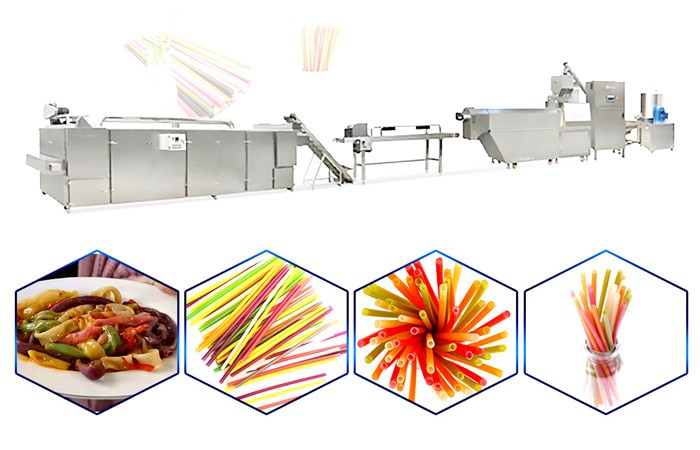The Development Trend Of Edible Rice Straws
In recent years, our country’s catering industry has developed rapidly. With the improvement of people’s living standards and the injection of foreign-sales industries, the scale of market demand in the catering industry has continued to expand, and the industry has continued to upgrade along with consumption upgrades. But at the same time, the catering industry is also facing some problems, such as the pollution of plastic packaging materials such as disposable plastic straws.
The scale of market demand in the catering industry continues to expand, and it is also facing serious environmental problems, such as plastic pollution. In the catering market, plastic straws are a fixed match for many drinks such as milk tea and cola, which are convenient and easy to use. However, while plastic straws bring convenience to consumers, they are also a "dead knot" in environmental pollution. It is said that the number of plastic straws in my country last year was nearly 30,000 tons, or about 46 billion, and the per capita usage has exceeded 30, and it is difficult to purchase and exercise, and the degradation time of each straw may be as long as 500 years.
Therefore, accelerating the pace of "restricting plastics and reducing plastics" and prohibiting or restricting the use of disposable plastic products such as plastic straws are important for reducing plastic pollution and protecting the environment. So , in the face of the ban on plastic straws at the end of the year, how should the relevant catering companies respond ?

Some people in the industry said that with the innovative development and breakthrough of new materials and new technologies, catering companies can look for alternatives to plastic straws, such as biodegradable bioplastics, or recyclable paper or bamboo, plant straws, glass, metal, etc. Product replacement.
It is reported that some fast food restaurants and catering companies have taken action to stop using plastic straws, and at the same time make fine adjustments to the design of cup lids, or put paper straws on the service counter, and print "Reduce Use" on the outer packaging of plastic straws. "The straw is more environmentally friendly" logo. There are also coffee, milk tea and other beverage stores that have also "changed" to make it easier for customers to drink. On the take-out platform, many catering stores have added the options of "not using plastic straws" and "replace plastic straws with paper straws", advocating consumers to reduce the use of plastic straws.
According to statistics from relevant associations, the current production of degradable plastics in China accounts for about 25% of the world's production capacity, which is equivalent to the proportion of China's plastics in the world's production capacity. In the past ten years, the annual registration number and growth rate of China's biodegradable materials-related enterprises have shown steady growth. Trend, degradable plastic technology has achieved breakthrough development . According to inquiries, R&D personnel can not only use rice husks and sugarcane pulp, but also realize the industrialization of seawater biodegradable plastics, which undoubtedly injects technological power into the replacement of plastic straws in the catering industry.
There is no doubt that banning plastic straws is an important measure to reduce plastic pollution and protect the ecological environment, and is an urgent need for connected development. The edible straw making machine invented by Shandong Loyal Industrial Co., Ltd. effectively provides a solution to the problem. Taking into account consumption habits, especially for beverage shops such as milk tea and coffee where plastic straws are used frequently, it has become an urgent task to find products that can replace plastic straws. Not only do catering companies and consumers participate, but also related to innovation and research and development of high-quality and inexpensive plastic substitutes, and jointly contribute to reducing plastic pollution and protecting the environment.